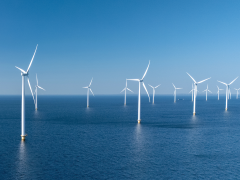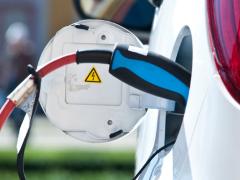PBL Note Sustainability of biomass in a bio-based economy
The conversion of the present European economy based on fossil fuels into a more bio-based economy will probably be restricted to about 10 per cent of final energy and feedstock consumption in 2030. Sufficient supply of ecologically sustainable biomass will be critical. These are the main findings of a quick-scan analysis carried out by the PBL Netherlands Environmental Assessment Agency and CE Delft.
The conversion of a fossil fuel-based economy into a bio-based economy will probably be restricted in the European Union (EU) by the limited supply of ecologically sustainable biomass. It appears realistic that, for the EU, the sustainable biomass supply will be enough to meet about 10 per cent of the final energy and feedstock consumption in 2030. Under optimistic assumptions, this supply might increase to 20 per cent. EU Member States already aim to apply an amount of biomass in 2020 that already approaches this 10 per cent. Therefore, from a sustainability perspective, there is an urgent need to guarantee ecologically sustainable biomass production.
Sustainability of biomass production
In considering sustainable biomass production, land use is the most critical issue, especially the indirect land-use impacts on greenhouse gas emissions and biodiversity. The use of waste resources and agricultural and forestry residues, that does not involve additional land use, therefore, would be a sustainable option. Technically, it is possible to use these types of resources for most applications in a bio-based economy, but it seems unlikely that, by 2030, they will contribute more than three to four per cent to the final energy and feedstock consumption in Europe.
Priorities
Three priorities can be distinguished in the transition to an ecologically sustainable bio-based economy that aims to reduce the consumption of fossil fuels:
- develop new technologies, procedures and infrastructure to collect or to produce more biomass without using directly or indirectly valuable natural land;
- develop technologies to produce hydrocarbons from types of biomass that have potentially the highest sustainable supply, and stimulate the application of these hydrocarbons in sectors of the economy where no or very few fossil-free alternatives exist;
- develop a system of criteria, certification schemes and enforcement for all types of biomass that aims to reduce the impact of direct and indirect land use on greenhouse gas emissions and biodiversity, to extend the current EU system that is restricted to the direct impacts of transport biofuels.
These are the main findings of a quick-scan analysis carried out by the PBL Netherlands Environmental Assessment Agency and CE Delft of the biomass demand of a bio-based economy in the European Union in 2030 compared to the sustainable supply.
More information
Authors
Specifications
- Publication title
- PBL Note Sustainability of biomass in a bio-based economy
- Publication date
- 9 February 2012
- Publication type
- Publication
- Publication language
- English
- Product number
- 628




